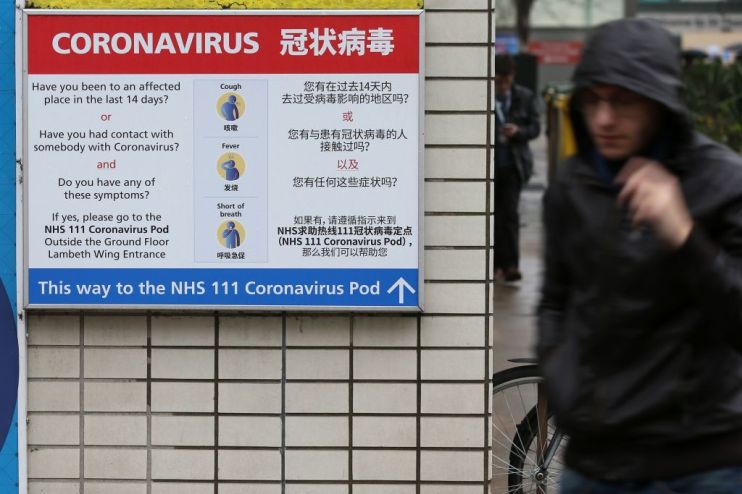UK businesses call for government help amid coronavirus outbreak

Businesses big and small have called for urgent action from the government to help deal with the burden of sick pay amid the coronavirus outbreak and to ensure low-paid and part-time workers are supported.
The intervention from business groups came after Prime Minister Boris Johnson promised statutory sick pay (SSP) from day one for all those off work with suspected coronavirus, instead of from the fourth day.
The CBI and Federation for Small Businesses (FSB) both said the government must do more to support the self-employed, low-paid workers and those on zero-hours contracts who may not qualify for statutory sick pay.
The groups were divided on the extent to which they welcomed the government’s announcement on sick pay, however, which has to be paid by employers for up to 28 weeks.
The CBI said it “supports the government’s decision that, in these extraordinary circumstances, statutory sick pay will begin from day one”.
Yet FSB national chairman Mike Cherry was more wary, highlighting examples of “small businesses almost going to the wall because they’ve had staff suffering long-term absences and they’re not able to reclaim the cost of statutory sick pay”.
Cherry said the government must step in to cover some of the cost. He said the government “should now urgently reintroduce a full rebate for small firms”.
There have been 90 reported cases of coronavirus so far in the UK. The government on Tuesday warned that up to a fifth of UK employees could be made absent by coronavirus.
It also unveiled a plan to cope with the outbreak, which could result in closed schools, more working from home, and large-scale gatherings being cancelled.
The CBI today made a number of proposals for helping businesses and workers cope with the impact of the outbreak.
Chief among these was the extension of SSP to all workers, including agency staff and others on flexible or zero-hours contracts.
It said the government should also remove the need to earn more than £118 per week to qualify for SSP, which it said is unfair to part-time employees.
Edwin Morgan, director of policy at the Institute of Directors, said: “Clearly it is a new cost for some businesses, but many companies already have their own contractual sickness pay policies.”
He said the bigger question is what kind of support the government will provide if the outbreak becomes more severe.
Incoming Bank of England governor Andrew Bailey yesterday said Threadneedle Street and the government is likely to provide loans to small and medium-sized firms to help them deal with supply chain disruptions from the coronavirus outbreak.
“I think it is quite reasonable to expect that we are collectively going to have to provide some form of supply-chain finance,” he said.